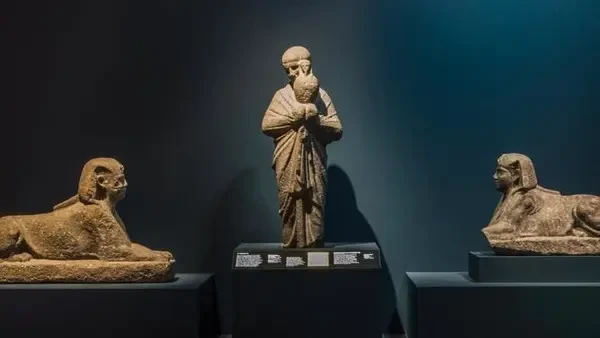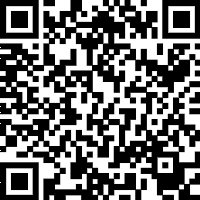The Governor of Fayoum receives the head of the Remote Sensing Authority and a delegation from the authority to enhance aspects of joint cooperation.
Three projects for collaboration between the Remote Sensing Authority and the Fayoum Governorate to serve the sustainable development goals of the governorate.
Dr. Ahmed Al-Ansari: Tourism, agriculture, and industry are
the foundation of the economic structure of the governorate.
Dr. Islam Abu Al-Magd: The Remote Sensing Authority places
cooperation with the Fayoum Governorate at the top of its priorities.
Dr. Ahmed Al-Ansari, the Governor of Fayoum, met with Dr.
Islam Abu Al-Magd, the head of the National Authority for Remote Sensing and
Space Sciences, along with his accompanying delegation, to enhance cooperation
and integration between the two sides in order to serve the goals of
sustainable development in the governorate.
At the beginning of the meeting, Dr. Ahmed Al-Ansari
welcomed the delegation from the authority, emphasizing the importance of
cooperation between the governorate and the authority in various fields. He
pointed out the significance of the studies conducted by the remote sensing
authority, as they are presented to decision-makers and executive officials for
implementation in a way that benefits the community.
Dr. Islam Abu Al-Magd explained that the National Authority
on Remote Sensing and Space Science places cooperation with Fayoum Governorate
at the top of its concerns, pointing out that modern technology is effective in
bringing about community development in various fields.
The head of the authority pointed to the directives of Dr.
Ayman Ashour, Minister of Higher Education and Scientific Research, to conduct
applied research that serves development across various geographical regions,
in line with the implementation of the goals and principles of the national
strategy for higher education and scientific research. He clarified that the
authority is keen to collaborate with various institutions and entities and to
utilize the available resources within the authority to implement projects and
research that have economic and social returns, contributing to the efforts of
the Egyptian state to enhance the national economy and society and improve the
level of services provided to citizens.
Dr. Mohamed Amin Abo Al-Ghar, head of the Agricultural
Applications Department, pointed out the importance of increasing cooperation
between the governorate and the authority by implementing development projects
that can have economic and social returns, which the governorate can benefit
from to achieve comprehensive community development.
During the meeting, the delegation from the Remote Sensing
Authority presented three proposals for practical projects.
Dr. Abdulaziz Bilal, Head of the Division of Agricultural
Applications, Soil and Marine Sciences of the Authority, presented a project on
"Optimising the land south of Lake Qaroun in
Fayoum Governorate using remote sensing techniques and geographic information
systems", noting that the Government of Egypt is making great efforts to
establish horizontal agricultural expansion projects, as well as creating new
urban communities in desert areas; To close the food gap caused by the
population increase, reduce population pressure in the valley and the Delta,
create wide opportunities for investment, increase national income and create
new jobs, stressing that it is necessary to prepare studies on natural and land
resources in Egyptian lands in general and on cultivated lands that may have
problems; The goal is to select the most suitable locations for agricultural
expansion projects without waste of existing agricultural land.
Dr. Abdulaziz Bilal indicated that the Authority uses modern
methods and methods based on remote sensing and GIS data, field measurements by
portable and mobile sensors, and the collection and analysis of soil and water
samples from study areas to determine the optimal use of the land south of Lake
C by one width and 55 km2 for an area of approximately 13,000 acres by
assessing the chemical, natural and climatic properties of the land and then
determining its optimal use for agricultural production or exploitation from
Not based on the productive capacity of the land, the appropriate crop
structures, identifying problems of agricultural production and how to develop
solutions to those problems (e.g., water level rise, salinity, pollution,
impact on production).
Dr. Mustafa Atef, Assistant Professor of Marine Sciences at
the Authority, presented a project on "Analyzing and assessing the optimal
locations for major investment and resources in the Lake Qarun region using
geomagnetic technologies", and explained that the growing demand for new
areas of economic activity in conjunction with the need to protect and improve
their sustainability is a strong motivation to exploit the resources of Lake
Karun in measured and effective ways, noting that this development trend
requires modern and innovative technical actions; To balance economic
development with ecosystem conservation, which is essential; To ensure
continued use of this lake for future generations, Lake Qarun
is an ideal model for sustainable investment; With the aim of improving the
quality of life for the local people and strengthening the local economy, by
focusing on development projects and taking advantage of the capabilities of
Fayoum Governorate and Lake, where the goal is to create an attractive investment
climate that shows the promising potential of the region and meets the urgent
needs for development and investment.
Dr. Mustafa Atef added that the optimal exploitation of
these resources is a vital step towards sustainable development that preserves
the environment and will provide economic and social benefits for the
governorate of Fayoum and Egypt as a whole. This study is designed to identify
and analyse suitable places for investment and major resources in Qarun lake,
using geomatics and remote sensing represented by fish resources, whether
natural or fish cages or in the area of wetlands around the lake and extracting
important salts or minerals Investment in renewable and clean energy is one of
the priorities of the Egyptian state and falls under the Egyptian Vision 2030,
adding that the lake is one of the places with very high solar brightness, so
the best places for solar energy will be identified on some of the most
evaporative places on the surface of Lake Qarun. To keep the lake from
evaporating and producing clean energy serving other development goals, he
noted that this study includes two phases: the first phase includes Lake Qarun
and its shores, and the second phase includes Wadi al-Rayan and surrounding
areas.
Dr. Ilham Mahmoud, Professor of Marine Environment,
Environment Division, presented a project on "Analysis and assessment of
potential and resources for the development of environmental tourism projects
in Fayoum Governorate using geomatics and remote sensing techniques - phase I:
Wadi al-Rayyan region", where the Authority plans to conclude an agreement
with Fayoum Governorate; The objectives of the study were to produce an
investment map for the area of the Rayan Valley Reserve in Fayoum Governorate
using modern geomatics, GIS and remote sensing technologies.
Dr. Ilham Mahmood said the study is in two phases, and it
includes an assessment of the current situation in the Rayan Valley region,
identification of the most important natural and environmental resources and
study of their potential for exploitation in environmental projects and
sustainable tourism investments. Using these new technologies, prospective maps
will be produced with proposals that serve and promote ecotourism using
high-resolution technologies (lasers and virtual reality) that benefit the economy
and tourism of conservation while not adversely affecting the environment.
Dr. Ahmed Al-Ansari explained that the three projects are of
concern to the governorate, as tourism, agriculture and industry are the
foundation of the governorate's economic construction.
Dr. Islam Abu Al-Magd explained that the authority would
conduct a voluntary study of the province and indicated that a schistosomiasis
map of Fayoum province would be created.
At the end of the meeting, Dr. Islam Abu Al-Magd presented a
series of modern satellite maps and images of the governorate, to Dr. Ahmed
Al-Ansari with appreciation for this cooperation.











